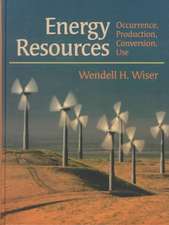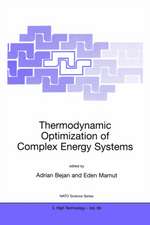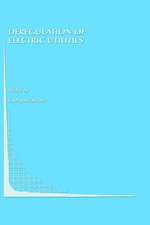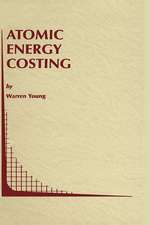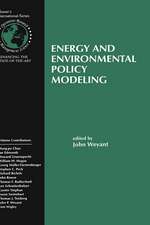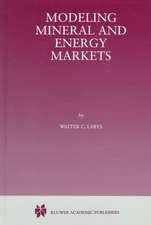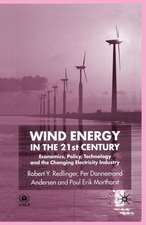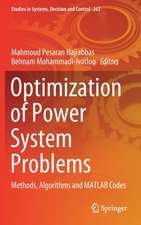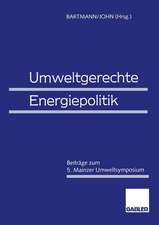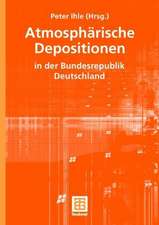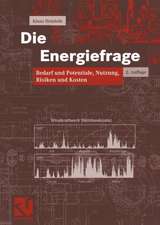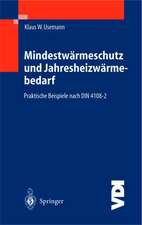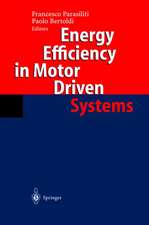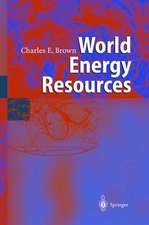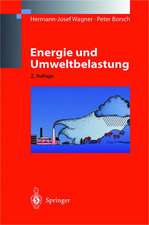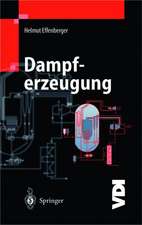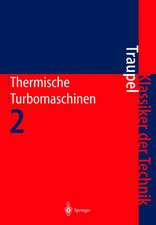The Renewable Energy Transition: Realities for Canada and the World: Lecture Notes in Energy, cartea 71
Autor John Erik Meyeren Limba Engleză Paperback – 19 oct 2020
This book also reviews what nations have been doing thus far in terms of renewables, including the successes and failures in Canada and across the globe. Ontario’s green energy fiasco, and a comparison of the different circumstances of Norway and Alberta, for example, are covered as part of the author’s comparison of a wide range of countries. What are the achievements, plans, and problems that determine how well different countries are positioned to make “the transition”?
The transition path is complex, and the tools we need to develop and the physical infrastructure investments we need to make, are daunting. At some point in time, Canada and Canadians, like all nations, will be living on 100% renewable energy. Whether the social and technological level that endures sees us travelling to the stars, or subsisting at a standard of living more similar to the pre-fossil fuel era, is far from certain.
| Toate formatele și edițiile | Preț | Express |
|---|---|---|
| Paperback (1) | 732.70 lei 6-8 săpt. | |
| Springer International Publishing – 19 oct 2020 | 732.70 lei 6-8 săpt. | |
| Hardback (1) | 738.86 lei 6-8 săpt. | |
| Springer International Publishing – 19 oct 2019 | 738.86 lei 6-8 săpt. |
Din seria Lecture Notes in Energy
-
 Preț: 436.35 lei
Preț: 436.35 lei - 15%
 Preț: 655.60 lei
Preț: 655.60 lei - 18%
 Preț: 952.09 lei
Preț: 952.09 lei - 18%
 Preț: 1012.84 lei
Preț: 1012.84 lei - 15%
 Preț: 635.80 lei
Preț: 635.80 lei - 15%
 Preț: 645.96 lei
Preț: 645.96 lei - 15%
 Preț: 645.47 lei
Preț: 645.47 lei - 15%
 Preț: 640.06 lei
Preț: 640.06 lei - 15%
 Preț: 649.71 lei
Preț: 649.71 lei - 15%
 Preț: 643.84 lei
Preț: 643.84 lei - 18%
 Preț: 954.31 lei
Preț: 954.31 lei - 15%
 Preț: 643.84 lei
Preț: 643.84 lei - 18%
 Preț: 949.73 lei
Preț: 949.73 lei - 18%
 Preț: 1411.69 lei
Preț: 1411.69 lei - 15%
 Preț: 634.18 lei
Preț: 634.18 lei - 15%
 Preț: 649.87 lei
Preț: 649.87 lei - 15%
 Preț: 642.03 lei
Preț: 642.03 lei - 18%
 Preț: 957.62 lei
Preț: 957.62 lei - 15%
 Preț: 652.49 lei
Preț: 652.49 lei - 18%
 Preț: 963.15 lei
Preț: 963.15 lei -
 Preț: 361.03 lei
Preț: 361.03 lei -
 Preț: 391.79 lei
Preț: 391.79 lei - 15%
 Preț: 646.11 lei
Preț: 646.11 lei -
 Preț: 394.29 lei
Preț: 394.29 lei -
 Preț: 391.22 lei
Preț: 391.22 lei - 18%
 Preț: 954.45 lei
Preț: 954.45 lei - 18%
 Preț: 957.62 lei
Preț: 957.62 lei - 15%
 Preț: 647.27 lei
Preț: 647.27 lei - 18%
 Preț: 960.30 lei
Preț: 960.30 lei - 18%
 Preț: 1250.74 lei
Preț: 1250.74 lei - 15%
 Preț: 642.18 lei
Preț: 642.18 lei - 15%
 Preț: 639.41 lei
Preț: 639.41 lei -
 Preț: 488.71 lei
Preț: 488.71 lei - 18%
 Preț: 1677.21 lei
Preț: 1677.21 lei
Preț: 732.70 lei
Preț vechi: 893.54 lei
-18% Nou
Puncte Express: 1099
Preț estimativ în valută:
140.22€ • 146.21$ • 116.53£
140.22€ • 146.21$ • 116.53£
Carte tipărită la comandă
Livrare economică 21 martie-04 aprilie
Preluare comenzi: 021 569.72.76
Specificații
ISBN-13: 9783030291174
ISBN-10: 3030291170
Pagini: 386
Ilustrații: XXXIV, 386 p. 125 illus., 109 illus. in color.
Dimensiuni: 155 x 235 mm
Greutate: 0.59 kg
Ediția:1st ed. 2020
Editura: Springer International Publishing
Colecția Springer
Seria Lecture Notes in Energy
Locul publicării:Cham, Switzerland
ISBN-10: 3030291170
Pagini: 386
Ilustrații: XXXIV, 386 p. 125 illus., 109 illus. in color.
Dimensiuni: 155 x 235 mm
Greutate: 0.59 kg
Ediția:1st ed. 2020
Editura: Springer International Publishing
Colecția Springer
Seria Lecture Notes in Energy
Locul publicării:Cham, Switzerland
Cuprins
Energy, Resources, Population and Society - Why we need energy and why we need to develop energy policy.- Canada’s Energy History from Seal Oil to EROI metrics and Transition Modelling.- The Transition to Renewables – Why do we need to do it?.- Renewable Energy Learning Curve.- Renewable energy in a spectrum of countries – the impact.- The Metrics of Renewable Energy – Understanding what you are counting.- The Transition from the Ground Up.- Building a renewable energy network.- A New World for Public Policy - Energy Transition = Social Transformation.- Pushed out of the Nest – The challenge and Opportunity of the Renewable Energy Transition.
Notă biografică
John Erik Meyer has been circling the issues of per capita resources, social equality and leadership since high school. A BA in Economics and years of working with physical units and dollar accounting and costing systems brought the different abilities of these measurement processes into sharp relief. He is a patent holder and has had a number of articles published in Canada’s major newspapers dealing with a range of topics from population, immigration and the environment to the failings of GDP based metrics for social policy formation. He has also presented a paper on Energy Currency at a conference of that name in Split, Croatia. He maintains a site, which focuses on the concept of energy based currency. Mr. Meyer is currently President of the NGO “Canadians for a Sustainable Society” and owner and designer at a small medium tech manufacturing company. He also dabbles in solar electric and heating systems as well as electric bikes and has designed and built a house whichhe expects to be (eventually) energy positive. His primary interests are the changes necessary to achieve a sustainable society, population cycles, biophysical economics and the reasons for failed human social structures throughout history.
Textul de pe ultima copertă
Canada is a well-endowed country that serves as an ideal model to lead the reader through the development of energy, resources, and society historically and into a post-carbon future. The book provides an historical perspective and describes the physical resource limitations, energy budgets, and climate realities that will determine the potential for any transition to renewable energy. Political and social realities, including jurisdiction and energy equality issues, are addressed. However, we cannot simply mandate or legislate policies according to social and political aspirations. Policies must comply with the realities of physical laws, such as the energy return on investment (EROI) for fossil-fuel based and renewable energy systems. EROI is discussed in both historical terms and in reference to the greater efficiencies inherent in a distributed generation, mainly electric, post-carbon society. Meyer explores the often misleading concepts and terms that have become embedded in society and tend to dictate our policy making, as well as the language, social and personal goals, and metrics that need to change before the physical transition can begin at the required scale.
This book also reviews what nations have been doing thus far in terms of renewables, including the successes and failures in Canada and across the globe. Ontario’s green energy fiasco, and a comparison of the different circumstances of Norway and Alberta, for example, are covered as part of the author’s comparison of a wide range of countries. What are the achievements, plans, and problems that determine how well different countries are positioned to make “the transition”?
The transition path is complex, and the tools we need to develop and the physical infrastructure investments we need to make, are daunting. At some point in time, Canada and Canadians, like all nations, will be living on 100% renewable energy. Whether the social and technological level that endures sees us travelling to the stars, or subsisting at a standard of living more similar to the pre-fossil fuel era, is far from certain.
The transition path is complex, and the tools we need to develop and the physical infrastructure investments we need to make, are daunting. At some point in time, Canada and Canadians, like all nations, will be living on 100% renewable energy. Whether the social and technological level that endures sees us travelling to the stars, or subsisting at a standard of living more similar to the pre-fossil fuel era, is far from certain.
Caracteristici
Uses the Canadian model of energy and society to derive universal principles for the transition to a post-carbon future Outlines common reasons for policy failure and offers principles necessary for a successful energy transition Explains how energy availability underlies social conflict and decline Includes practical examples of how individuals can improve their own energy security and that of their community and nation

